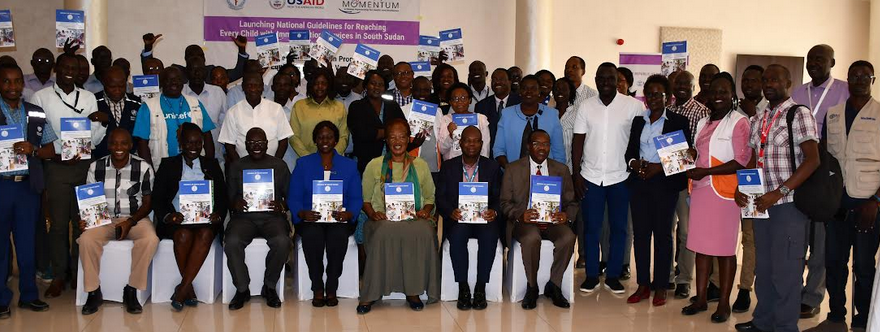The national health ministry and its partners including WHO, UNICEF, Momentum, and USAID on Wednesday launched an immunization coverage guideline aimed at addressing, coverage, inequity, and resilience in immunization programs across the country.
Speaking to Radio Tamazuj during the launch, Atem Nathan Riak, the director general for primary health care in the health ministry, said the National Reach Every County (REC) guideline aims at improving coverage for immunization from the current 80 percent to over 95 percent.
“There are children who have not been able to be accessed because the mothers at times are busy so those are the children we want this strategy to help us reach them,” he said.
Riak revealed that South Sudan has developed a new five-year health plan and received funding from Gavi, the vaccine alliance, for its implementation.
Meanwhile, Dr. Victor Sule, the immunization manager for UNICEF South Sudan, said the REC guideline comes at a time when the global community is witnessing stagnation in immunization coverage and a rise in the number of zero-dose children across the world.
“Just recently in April 2023, world immunization week was celebrated, and UNICEF`s State of the World`s Children (SOWC) 2023 was released,” he said. “Both events underscored the need to address the global rising zero dose and under-vaccinated children putting it at about 12.4 million without basic, routine vaccine every year.”
Dr. Sule noted that joint estimates on immunization coverage put the coverage of PENTA 1, an important base vaccine covering five life-threatening diseases, at only 51 percent in 2021 which indicates an alarming over 200,000 zero-dose children.
He stressed that the REC guidelines will help facilitate reaching children in hard-to-reach communities and ensure equity in immunization services.
For his part, Dr. Fabian Ndenzako, the World Health Organization (WHO) representative in South Sudan, said the launch of the REC strategic document is a significant step toward achieving universal immunization coverage in South Sudan.
He stressed that REC will accelerate the progress towards the Immunization Agenda 2030 Goals, Triple Billion Goals, and U.N. Sustainable Development Goals (SDGs) as well as act as a pathway towards Universal Health Coverage.




